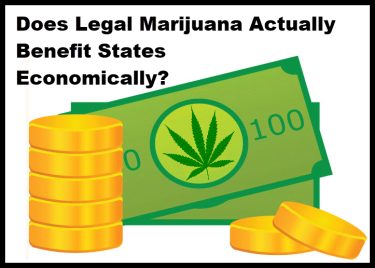
Guess the economic benefits of recreational cannabis to a city or state
At the time of writing, 21 states and Washington DC have legalized adult use of cannabis.
Thirty-seven states have now legalized the medical use of marijuana. This trend is expected to continue to increase this year, which is tremendously good news not only for recreational and medical consumers, but for the economy as a whole. There are several studies highlighting the economic benefits of legal marijuana, and how it’s helping societies and businesses at large can no longer be denied.
These findings echo the arguments of legalization opponents who say recreational cannabis can be harmful to society and health. They also argue that recreational cannabis can hinder commercial success. However, the data suggest the opposite.
The latest study was conducted by researchers at San Diego State University along with Bentley University. The analysis, released by the National Bureau of Economic Research, is the first to examine how recreational cannabis is affecting employment, salaries and the overall job market. Researchers assessed data from the Current Population Survey 2002-2020 Merged Outgoing Rotation Groups and accounted for differences in approaches.
They found that “there is little evidence that RMLS [recreational marijuana laws] negatively impacting the labor market outcomes of people of working age.” To the contrary, the researchers observed employment and salary increases due to recreational marijuana laws. These patterns were more pronounced among adults over the age of 30, as well as among younger ethnic minorities and people working in agriculture.
“These findings are consistent with the opening of a new legal industry for marijuana and (particularly for the elderly) substitution away from harsher substances such as opioids,” they said.
Unlike other studies looking at the impact of recreational cannabis on the economy, the researchers instead focused on the broader impacts, with an emphasis on productivity. However, they discovered that marijuana reform effectively paved the way for a new industry and led to the creation of more jobs. It is also significant that legal marijuana has proven to be an effective deterrent to heavy drinking and opioid use. Additionally, the researchers found that adult marijuana market access reduced criminalization, which unreasonably affects more racial minorities, including Hispanics and blacks.
“Long-term labor market effects may be different as we learn about the impact of RMLs on cognitive development and human capital acquisition in those under 21, which may take some time to unfold and translate into market-level impacts on productivity, wages and/or employment,” the researchers wrote. “Furthermore, the labor market effects of reducing criminal records may also take time to unfold,” they said.
They acknowledged the challenges posed by the COVID-19 pandemic in determining how new legal markets will change in the near future as the pandemic caused a surge in sales, even more so after it abated. “Nonetheless, our findings answer some important early questions about the economic implications of recreational marijuana legalization,” they said.
other studies
Similar studies have been conducted in the past, using different methods, but yielding similar results.
An early 2022 article in The Conversation covered banking activity taking place in the first four states to legalize adult-use marijuana. They found that banking activity in Colorado, Washington, Alaska and Oregon increased significantly compared to the rest of the United States, even though cannabis is still illegal at the federal level. These results did not suggest that banks were illegally profiting from the rise of the cannabis trade, rather it was an indication that economic activity was boosted.
They analyzed data from regulatory filings to compare deposits and loans at banks in these states. Quarterly bank data from 2011 to 2017 was also analyzed to compare how it performed before and after marijuana legalization. They found bank deposits up an average of 4.3% in the four states following marijuana legalization, and a 6.5% increase in lending.
As cannabis legalization continues to spread across the United States, we expect it will only translate to even greater economic benefits.
Additionally, there is data that legalizing cannabis will also benefit state governments. Tax revenues collected by governments can be used to subsidize essential programs and social services, including school construction, infrastructure, education, behavioral medicine, alcohol and drug rehabilitation centers, public libraries, sentencing removal, and more. It also comes full circle when those funds are allocated to communities unjustly affected by the War on Drugs.
When state and local governments are able to successfully regulate recreational markets, thousands of new jobs will result. Last year, data compiled by Leafly and Whitney Economics showed that the state-licensed marijuana industry added more than 100,000 new jobs in 2021 alone, providing the industry with 428,000 full-time jobs. “In the eight years since the first nationwide adult-use cannabis stores opened, the industry has created hundreds of thousands of new jobs in the United States,” the report states. “More people are employed in the cannabis industry than barbers, barbers and beauticians combined,” it says.
Conclusion
Legalizing marijuana will give state economies the boost they need while generating valuable revenue for federal and state governments. Despite the fact that federal and state laws still conflict on the issue, states continue to push the legalization of marijuana.
BENEFITS OF LEGALIZATION, READ MORE…

WHAT ARE THE ECONOMIC BENEFITS TO STATES THAT LEGALIZE WEED?

Post a comment: